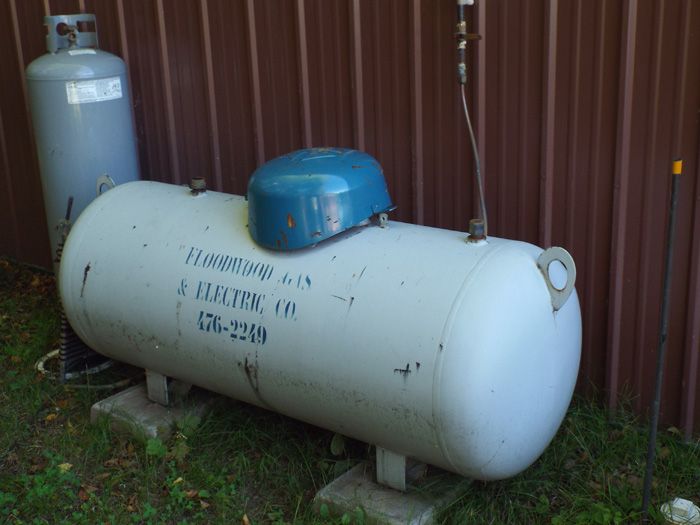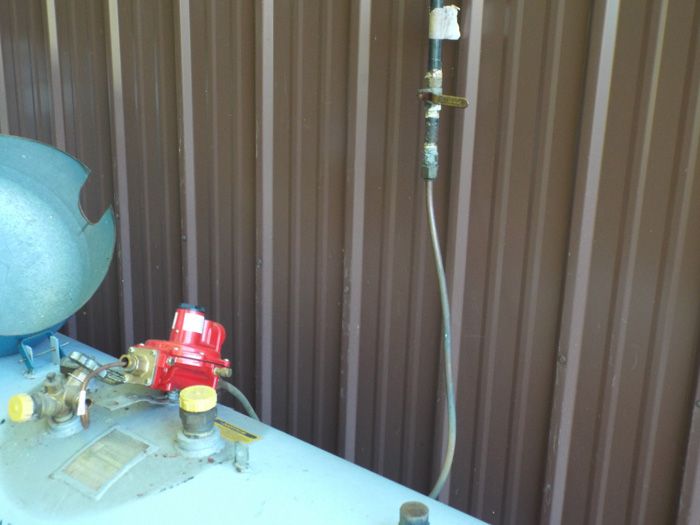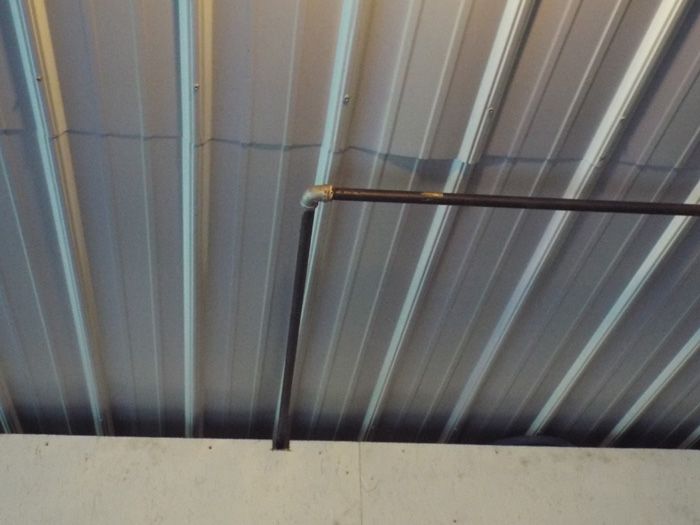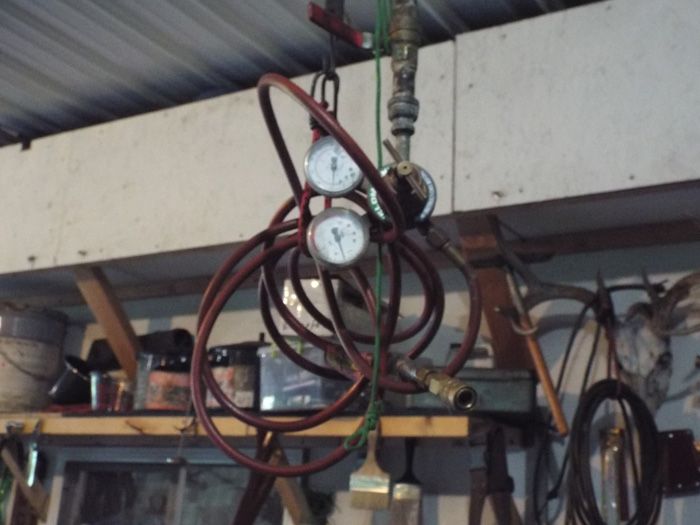Dan, your method sounds pretty much the way I do it. You mentioned humidity. I've noticed humidity can really affect my ability to weld. The last hurricane that hit the coast brought a lot of rain and high humidity to my area. I could not get a decent weld until the atmosphere dried out some. I assume that my blower was picking up moisture and blowing it into the forge. Whatever it was, I couldn't weld at any temperature.
Dale
Dale Huckabee
Journeyman Smith
dalehuckabeeknives.weebly.com
You guys who are running at 10 psi from the tank should have another step-down regulator in the building before the forge.
I'm not going to talk about the danger at that pressure, (there are reasons why gas and insurance companies don't want that much pressure going into a house!) but I will say that a low pressure regulator that you can adjust from 1-2# up to your 10# line pressure, in conjunction with your needle valve at the forge will give you control fffffaaaaaaarrrrrrrrrrrrrrrrr beyond what you have now.
I have my outside 120 gallon tank regulated at 7#. Run into the shop in black pipe. Coming down from the ceiling I have another regulator that I can adjust from about nothing up to my line pressure to feed the forge.
There is no way in Hades I would have 10# running to my forge.
No way.
I've been to enough funerals and I don't want mine to be the next one.
I'm just sayin'.
Back to the topic, at about 4 1/2# any one of my three forges will be at welding temp in about 20 minutes.
A little bit of safety and security regarding what we're doing is very easy to incorporate.
Here is my tank outside:
7# Regulator and shut off before going into the building:
Black pipe to the forging area:
Drop down from the ceiling with another shut off valve to the low pressure regulator and line to run to the forge.
The blower with gas inlet, shut off valve #3 - you never know where you will be when you need to shut that gas off! - and air gate valve.
Karl B. Andersen
Journeyman Smith
Karl is correct about the potential safety risks of running high pressure propane lines into a building. I didn't mean for the comments about my set-up to be a how to. I only described my arrangement, because I was asked directly about what pressure I ran my forge at. I didn't intend to suggest that running high pressure propane into your shop was a good idea.
While we're on the subject of safety, of equal or greater concern to me is the flexible hose that we all use to connect our forges. Many are using hoses that are designed for use with compressed air. Not all hose materials are safe for use with propane. Some hose materials can be degraded by exposure to propane. There are hoses made specifically for use with propane.
Additionally, there is fireproof sleeving that can be installed over a flexible hose to protect it from heat and molten splatter.
Choose your shop equipment wisely. Protect your propane hoses from damage and check them for damage often. Your life could depend on it.
Good advice Karl and Steve! I haven't used the propane forge since this discussion was started, but I really believe most of my problems are from to much air due to the size blower I have on the forge. I'm in the process of adding a gate valve to give me more air control.
Bob
Good advice on that hose sleeve, Steve. I like that.
The hose I use is fuel rated and I got some of it from High Temp tools.
Bob, the gate valve will solve a lot of tuning difficulties. Good move.
Karl B. Andersen
Journeyman Smith
|quoted:
thanks Steve....mine isn't forced air , that may be the issue I'm thinking........
Did the forced air conversion and hitting weld temps now quite easily and fast !!
Huge difference from the Venturi....lots of excellent info posted here, good post
[font="Comic Sans MS"]'Never Quit On Improving'[/font]






